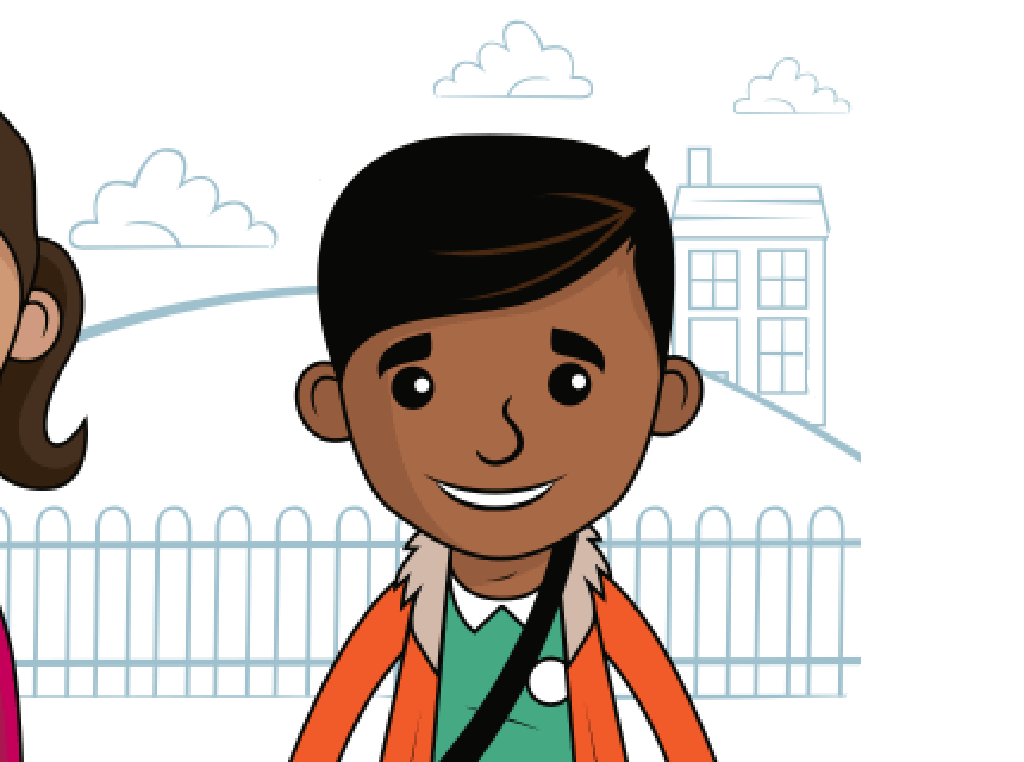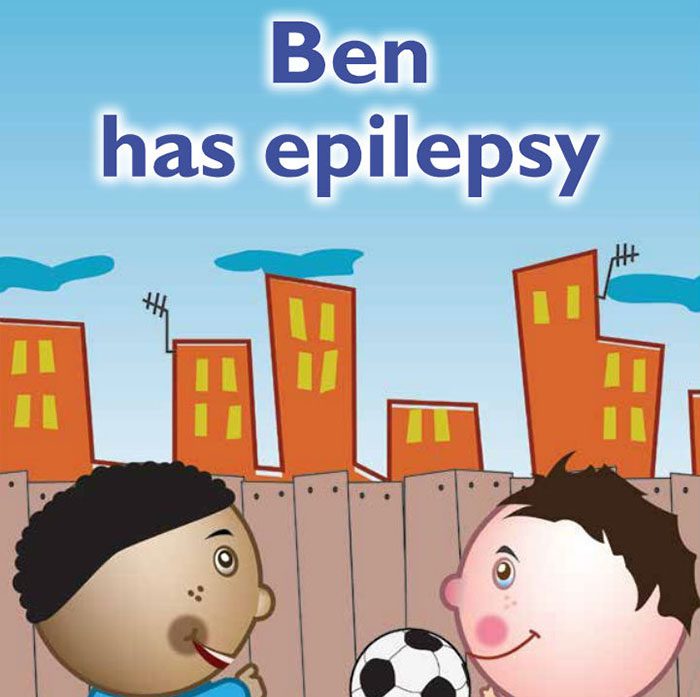Ben is 10 years old and lives with his mum. Ben has epilepsy.
Find what you need!
Watch
Jack's story: Tonic-clonic seizures
Ali's story: Absence seizures
Anna's story: Focal seizures
Jack's story: Staying safe
The big questions
-
What is happening to me?
You’re probably looking at this website because a grown-up thinks you might have had a seizure.
There are lots of different seizures.
You might know what’s going on when you have a seizure. Or you might not know anything until it’s all over.
This is what having a seizure can be like for some people:
- Getting a funny taste in your mouth
- Having a strange feeling in your tummy
- Pulling or tugging at your clothes
- Going stiff, then falling to the floor and jerking
- Staring into space for a few moments (people might think you’re daydreaming)
- An arm or leg may suddenly move on its own
Sometimes it’s really hard to describe exactly what it feels like for you.
Most seizures only last a few minutes. Some only last a few seconds.
-
What is epilepsy?
Epilepsy is when something unusual happens in your brain. Your brain is like a very powerful computer. It controls everything you do. When your brain starts sending too many electrical messages, this can make different things happen to your body.
These things have lots of names, like fits, seizures, funny turns and attacks. Here at Epilepsy Action we call them seizures.
Some children can have seizures every day. And other children might only have them now and then.
If you take epilepsy medicine, it might stop all your seizures.
You can’t catch epilepsy from anyone. Lots of children and grown-ups have epilepsy. So there may be other children in your school with it.
-
How will the doctor decide if I have epilepsy?
It’s important for your doctor to know what happens to you before, during and after a seizure. The doctor might ask a grown-up who looks after you to write down as much information as they can, each time you have a seizure.
The grown-up might write this information in a ‘seizure diary’ or on an app on their phone.
The doctor might also ask a grown-up to film you when you have are having a seizure. A mobile phone can be just the thing for this.
Your doctor might ask you to have some tests. Don’t worry – they don’t hurt. Children usually have an EEG test. Your doctor might ask you to have a brain scan as well.
The information from the tests can help your doctor decide if you have epilepsy. It can also help them choose the right medicine for your epilepsy.
-
Why have I got epilepsy?
The doctor can only sometimes tell you why you’ve got epilepsy.
This could be if:
- You’ve banged your head badly or
- You had a bad infection when you were a baby or
- Other people in your family have epilepsy
Or they might not know at all.
It certainly isn’t because of anything that you have or haven’t done. In fact thousands of people in the country and millions of people in the world have epilepsy.
Even animals can have epilepsy!
-
Will I get better?
If the doctor thinks you have epilepsy, they will probably want you to take epilepsy medicine. When you first start taking it, you might feel sleepy or dizzy or a bit sick for a few days. But that should go away after a while. Sometimes you have to try a few different medicines before you get to the right one for you.
Some children can have an operation on their brain to control their epilepsy. And some children go on a very special diet to try and stop their seizures.
Some children grow out of their epilepsy. So then the doctor says they can stop taking their epilepsy medicine. Others have to carry on with the medicine to make sure their seizures don’t come back.
-
Is having epilepsy dangerous?
One of the tricky things about epilepsy is that nobody knows when you might have another seizure.
So it’s really important that you and the grown-ups around you know the best ways for you to keep safe.
The doctors and nurses will do everything they can to help stop the seizures and get the right medicine for you. And while they’re doing that, the grown-ups at home and at school will help you with what to do and what not to do.
Here are some things they will probably say:
- Climbing up high isn’t a good idea. That’s just in case you have a seizure and fall and hurt yourself
- It’s not safe to have a bath or a shower on your own. Make sure you have a grown-up with you. And just make sure you have a grown-up with you if you go swimming
- If you cycle, make sure you always wear a helmet. And it’s best if you don’t cycle on busy roads if you’re still having seizures
- You might have been told you have photosensitive epilepsy. This means you have to be careful around flashing lights. This is because sometimes they could make you have a seizure
- The people who look after you at home and at school will need to know about your epilepsy and first aid. We have lots of information about that on our main website
So you can definitely still have lots of fun!
-
Why are my mum and dad acting odd?
Whoever looks after you may get really worried when you first start having seizures. This is normal and probably pretty annoying. They may even want to sleep in your bedroom to make sure you are safe at night.
With luck, they will calm down when they get some more information about epilepsy. If you can’t get them to stop worrying, tell them to look at the parents’ section on this website.
Or even better, if you live in the UK, get them to ring our Epilepsy Action Helpline freephone number. It’s 0808 800 5050. We’ll try our best to help them.
-
Does it make me different?
Other people, like your parents, teachers, brothers and sisters and classmates may treat you a bit differently when you first start having seizures. This is because they don’t know very much about epilepsy.
When they understand better they’ll see you are just the same person as before. If they’re taking a long time to realise that, it could help them to have a look at this website.
-
Information for mum and dad
Hopefully you found this website useful.
-
Information for brothers and sisters
If your brother or sister has epilepsy, this information might be helpful for you.
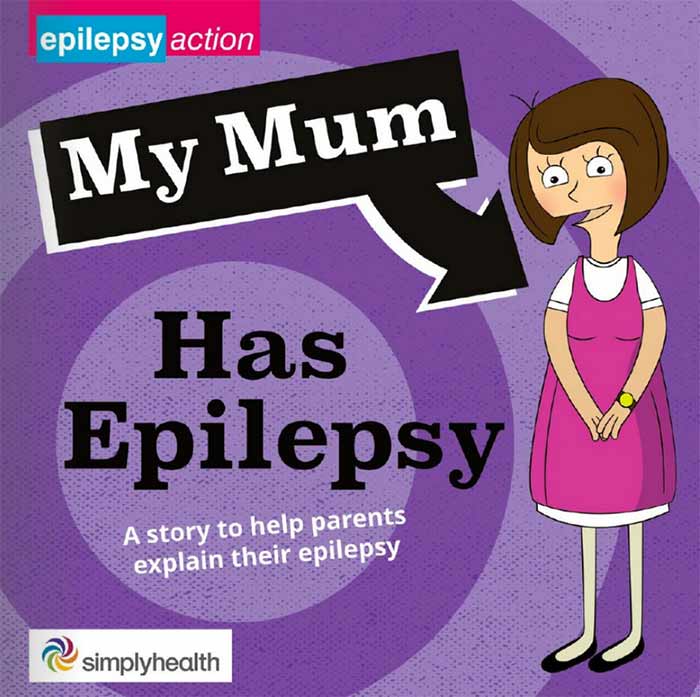
My mum has epilepsy
A story for parents to help them explain their epilepsy.
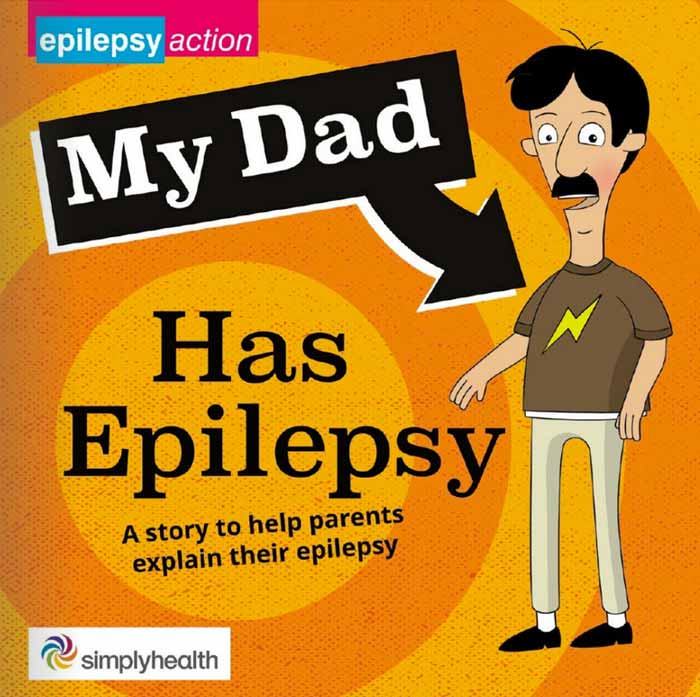
My dad has epilepsy
This information is for anyone with epilepsy who is a parent or cares for a young child.
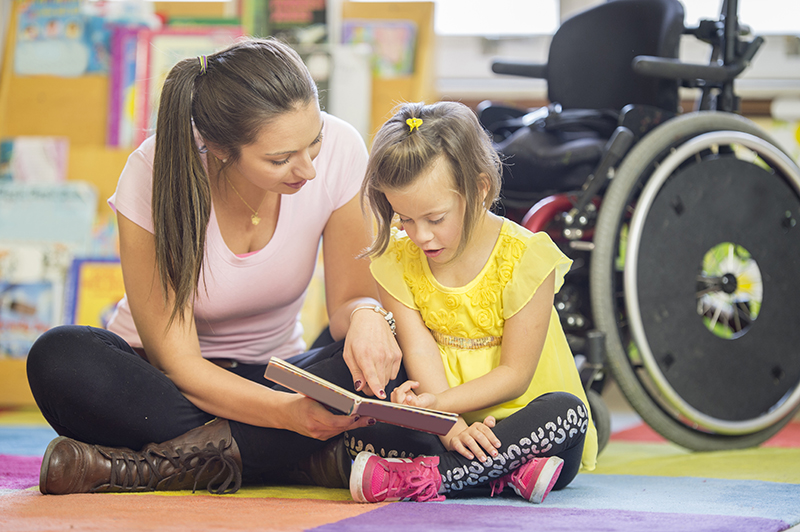
Stuff for school
Share this with your teachers and school support staff
Here to support you
Call the Epilepsy Action helpline
If you would like to talk to someone about epilepsy, our trained advisers are here to help.
Send us your question
Send a question to our trained epilepsy advisers. (We aim to reply within two working days).

